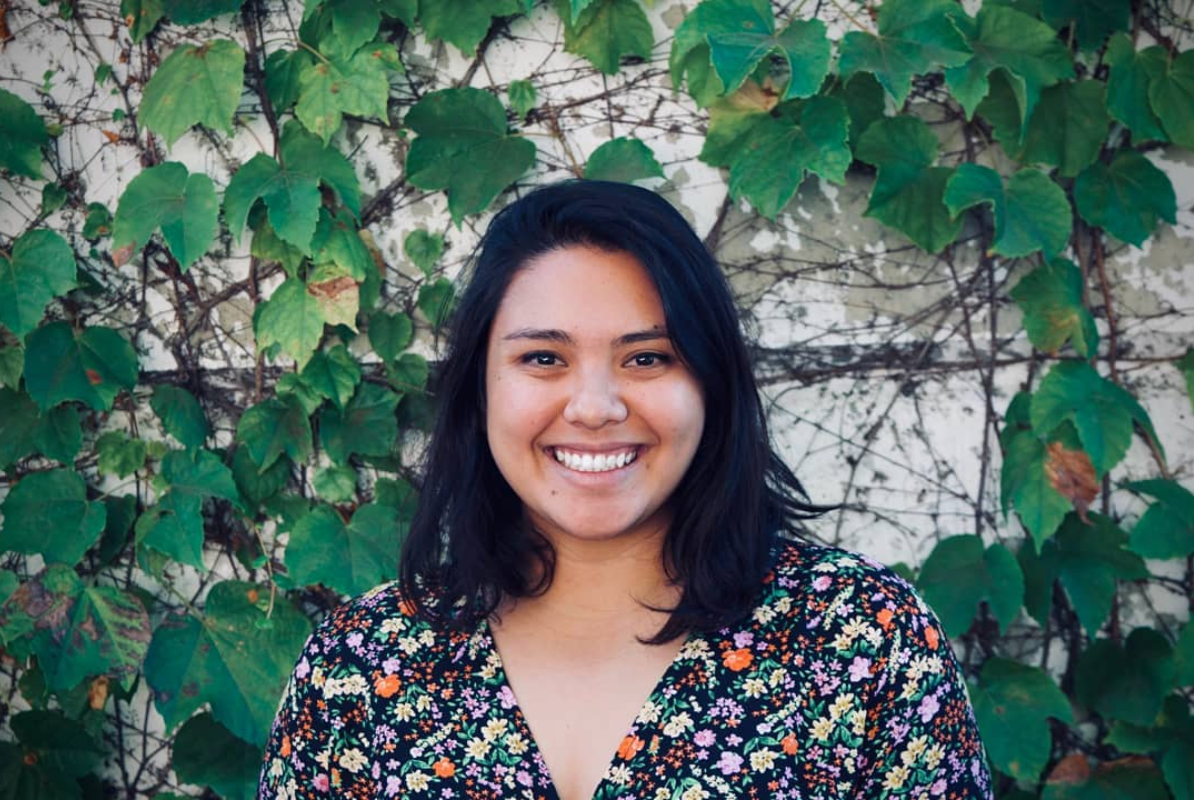< Back to all blog posts
Mental Health Equity: Mental Health Counselor Larissa Bertos Discusses Supporting Scholars’ Wellbeing During the Pandemic
February 3, 2021

Can you talk a little bit about your role and what brought you Alpha?
I am the mental health counselor at Alpha: Blanca Alvarado. I provide individual counseling for students with Individualized Education Plans (IEPs), who are getting counseling as part of their IEP as well as tier-1, general education mental health services that increase mental health support for all of our students.
What made you want to do this work at Alpha?
I am a Licensed Family and Marriage Therapist. When I was trying to figure out where I wanted to work, I wanted to work in a community that made the biggest impact. There is a disparity of access and I wanted to provide quality mental health and equitable access for all of our students regardless of socioeconomic status. A lot of our families in the East SJ area may not have mental health resources outside of school. School is the first place students go when they leave the home and is the first level of assessment. For students coming in who have depression, anxiety or family loss, the school would know and see the difference in students’ behaviors. That’s why I feel called to school mental health.
In what way has your role changed since the start of the pandemic?
I know all of our educators miss seeing students in person and it’s no different for me. It’s so much easier to pull a student aside and check in on how they’re doing versus getting students on Zoom for counseling. Normally I would be able to just scoop up students from class. It’s particularly hard for our kindergarten students who are so play based. Counseling has absolutely changed in that it feels a lot less like a bird’s eye view. I rely on our teachers to provide me with referrals. Teachers will notice when students are consistently not turning on their cameras or may express that they need help.
Especially now, why is it so important to focus on mental health?
This is a scary time. When things are unknown and when things feel really unstable and it might create fear in our students. It’s important for them to know that they’re safe, that they can still feel in control even when things feel out of control. Even for adults, this is jarring. We question all the time – will I have my job? Can I still provide for my family? Mental health in a lot of communities used to be taboo. Now there’s a behavioral and mental shift in our families during this unprecedented time. It’s important to connect with counselors and to resources if you’re feeling worried.
Do you also provide support to staff and teachers?
For staff, I do some professional development. We will talk about mental health symptoms and signs for our students so that they’re able to assess on a lower level. In terms of parents, I have a website on our Alpha: Blanca Alvarado online school website with an abundance of resources that are crisis based and are available for medi-Cal families.
How do you help our students better understand what’s going on around them?
We have established “Mental Health Wednesdays” – a half hour session where we engage our middle schoolers. The way that we make sense of the world is trying to understand our feelings and thoughts, to be in tune with what we’re feeling. It’s important not to minimize them so that it can inform what is happening to you. Say grandma gets sick and you don’t know if it’s COVID, it’s okay to get in touch with that sadness and fear. It’s okay to say “I’m afraid and I’m scared” and then you do something about it that is going to be healthy. I provide 5-10 minute video lessons as well that cover a variety of topics. These are the Social Emotional Learning (SEL) blocks that we’re implementing. This is perhaps the one silver lining in this virtual space. Normally I would not be able to spend this much time being face to face with our students. I would have loved to do these learning blocks in person but it would have presented a logistical challenge in person. Now I can create these videos that get pushed out to a much larger number of students and get about 160 responses each week consistently. That’s 160 students checking in, telling us whether or not their cup is full. They’re expressing their thoughts and feelings.
Have you noticed a trend amongst what kinders are feeling vs what our middle schoolers are feeling?
Kinders and first graders are really engaged. They’re resilient. For many who have not been to a formal school setting before, this is all they know and they’re adjusting. For our older students who have been in school and know what it’s like, they miss being with their friends.
What are some of the moments you’re particularly proud of as you reflect on your work?
I would definitely say it’s those SEL blocks because we’re now able to provide tier 1 support to as many students as possible. I was seeing a larger number of individual students last year. This provides a bigger touchpoint and I’m able to connect to more students. We have an Instagram account that our counselors run as well to push out resources and connect to a wider audience. We’re also trying a lot of other ways to engage with parents.
Can you speak to some of the work you’ve been doing in Diversity, Equity, and Inclusion (DEI)?
I come from a diverse background myself. DEI is trying to understand that there is room for everybody on every spectrum (what equal access to opportunities look like). We have to confront the reality of whether or not people have had equal access throughout history and of course that answer is no. As educators it’s important to understand what DEI looks like – everything that comes with the student – their experiences, culture, social economic status, race, gender, shapes who they are. We need to understand what their experiences are on an individual and group level to be able to teach them in a way that would be the most equitable. We begin to focus on restorative or trauma based education, helping our students understand that there’s not a pipeline to push them through. We want people to have better opportunities and we need to understand why those opportunities weren’t given to their parents and grandparents. This awareness is important so that we’re becoming a system that helps our children get access. We also have a lot to celebrate in our cultures. Our traditions may have been brushed aside when acculturating and I want our students and staff to know there is room for their culture here.
If you were to give one piece of advice to educators, administrators, or anyone working with students to support them, what would you say to them?
It’s important to have basic knowledge of mental health and how it factors into education health. Our children may be struggling to reach an academic potential due to mental health blocks. It’s not because they don’t want to. There are going to be more reasons than what we see on the surface, or even assume about them. We have to peel back the layers. Some of those layers could be mental health or environmentally related. They come with baggage and it’s important as educators to unpack some of that to better help our students learn.

Like this article? share it!